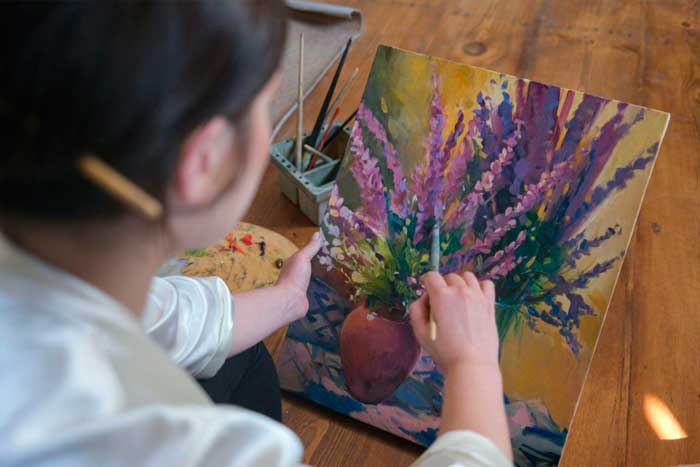Creative hobbies offer far more than just a way to pass time—they serve as powerful tools for enhancing mental focus, emotional well-being, and cognitive flexibility. As noted by Joseph Brvenik, engaging in these pursuits allows individuals to tap into their imagination, solve problems creatively, and develop persistence through hands-on learning.

Whether it’s painting, writing, or playing an instrument, they encourage the brain to operate in a mindful, present state that can lead to improvements in concentration and stress regulation. The benefits aren’t limited to the act itself; they extend into daily life, influencing how we manage tasks, approach challenges, and connect with ourselves. Even small efforts can lead to meaningful change over time, making them a valuable addition to anyone’s routine.
What are Creative Hobbies?
Creative hobbies are activities that involve imagination, self-expression, and hands-on engagement. They include things like writing, painting, photography, knitting, sculpting, and learning a musical instrument. These activities often allow people to step away from routine tasks and focus on something that brings personal satisfaction.
Many of these hobbies can be practiced casually at home or in group settings like community classes or clubs. Someone might sketch in a notebook during a lunch break, while another person might spend weekends learning guitar. The flexibility and accessibility make them easy to fit into different lifestyles, no matter how busy. Some even discover new friendships and communities through shared interests, adding a social dimension to their personal growth.
Mental Engagement
When someone engages in a creative hobby, their brain becomes deeply involved in the task. Activities like painting or composing music require attention to detail, pattern recognition, and emotional interpretation. This kind of mental involvement helps quiet background distractions and strengthens the ability to stay present.
Creative pursuits often encourage a meditative state, where the mind is focused yet relaxed. Writing a poem or assembling a handmade craft can lead to moments of flow, where time seems to pass without notice. These experiences support mental clarity and boost overall cognitive agility.
Building Focus Through Regular Creative Activity
Staying focused on a creative task, such as learning a new song on the piano or working through a detailed craft project, naturally trains the mind to concentrate for longer periods. Unlike multitasking, which can scatter attention, creative hobbies demand steady, uninterrupted engagement. This kind of focused practice can be a refreshing departure from the constant rush of modern life.
People who practice creative hobbies frequently report being better at tuning out distractions during other parts of their lives. A student who regularly draws may find it easier to stay attentive during lectures, while someone who sews might notice improved patience during problem-solving at work. This steady routine becomes a transferable skill that can even play a role in enhancing academic performance or job efficiency.
Creative Thinking and Problem-Solving Skills
Creative hobbies often push people to look at challenges from different angles. When sculpting, improvising music, or designing something from scratch, there’s rarely only one correct approach. This flexibility in thought nurtures problem-solving abilities that can be applied well beyond the creative space.
Someone who writes short stories might become more comfortable with ambiguity and plot twists, which mirrors how life presents unpredictable situations. Similarly, experimenting with new painting techniques can train the mind to take risks, adapt quickly, and find beauty in unexpected outcomes. These habits promote resilience and out-of-the-box thinking in everyday decisions.
Cognitive and Emotional Benefits
Spending time on creative hobbies supports emotional balance and reduces stress. When the mind is immersed in a meaningful task, it naturally shifts focus away from worries and mental clutter. This break in mental pressure can act as a reset, offering clarity and calm without the need for passive distractions.
Over time, creative work also boosts persistence and adaptability. A person who learns to play violin doesn’t master it overnight—they build skill through repetition, mistakes, and small wins. That process strengthens patience and a long-term mindset, both of which are valuable in work, relationships, and personal growth. Additionally, the sense of accomplishment after completing a creative project often leads to a boost in self-esteem and emotional resilience.
Getting Started with Creative Hobbies
Exploring a creative hobby doesn’t require a big investment or special talent. Something as simple as doodling during a commute or trying out a beginner’s watercolor set on the weekend can spark interest. The key is to stay curious and permit yourself to be a beginner. Even trying out a new recipe or rearranging a room can count as a creative outlet.
It helps to carve out small, consistent moments in the week for creative time. Over time, these routines become a welcome part of daily life. Whether it’s five minutes of journaling before bed or a Sunday spent experimenting in the kitchen, creative hobbies thrive when they’re approached with a spirit of play and frankness.
